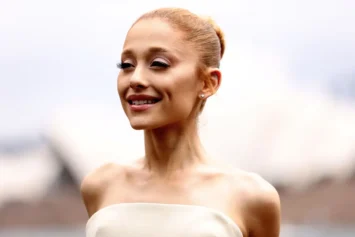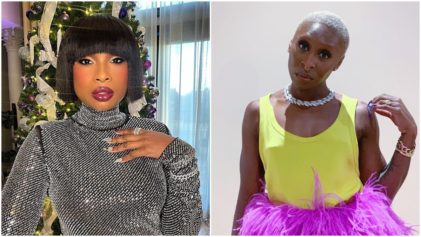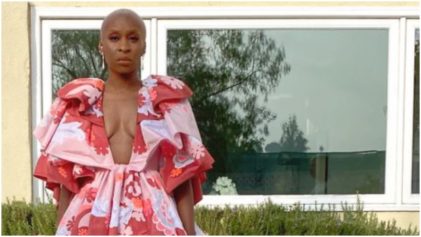Tony award-winner Cynthia Erivo is making history as the first Black actress to play Elphaba in “Wicked,” but not everyone is cheering. The Broadway star, who has transitioned to the big screen as Harriet Tubman in “Harriet” (2019) and Aretha Franklin in “Genius” (2021), has come under fire over several old tweets that some have deemed disrespectful to Black Americans.
For years, Erivo has proudly celebrated her Nigerian and British roots, but critics say her remarks on social media show disdain for Black Americans — even as she takes on roles that center Black American stories.
One X user in particular, eBoPeep, has done an extensive breakdown of the star’s comments and history of what the user deems having very anti-Black American statements, despite her insistence that she would never want to perpetuate “negativity” about them as a people.
The detailed thread has resurfaced on X highlighting several times Erivo was insinuated to have mocked Black Americans while hyping up her Nigerian and British background. The tweets left a sour taste for many who feel she’s been dismissive of the very community she profits from.
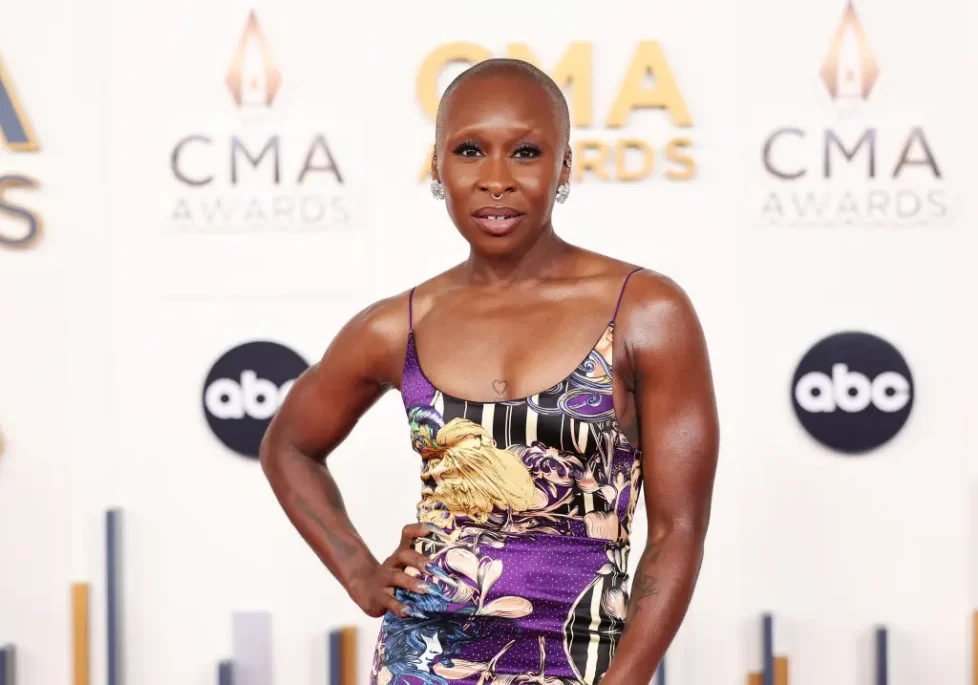
One of the tweets that added fuel to the fiery uproar dates back to 2013 when Erivo said she was using a “ghetto American” accent but went on to write using African-American vernacular.
In the January 2013 tweets, Erivo begins by saying, “I suppose i should really make an attempt to record ‘signal’ PROPERLY.”
A Caucasian friend responded to the tweet, writing, “@CynthiaEriVo or attempt to sing to me daily” to which Erivo writes, “@JoelMontague (ghetto american accent) baby u know I gatchu imma sing It To you but I still gatta do wadigattado, you feel me.”
“Well there’s this. Cynthia Ervio wants to play famous black Americans while disrespecting black Americans. That’s my issue,” one person tweeted.
In 2019, during an interview with Shadow and Act at the Toronto International Film Festival, she addressed the “ghetto American” remark while promoting the “Harriet” biopic.
She said, “I would say it took a lot of hard work to get to this place [of playing Harriet Tubman] and I didn’t take it lightly. I love this woman and I love Black people full stop. It would do me no service, it would be like hating myself.”
“As for the tweets, taken out of context without giving me the room to tell you what it meant— and it wasn’t mocking anyone really,” she continued, saying it was a throwback to an inside joke connected to a song she once written as a teen.
“I would never — I’ve never spoken negatively about people, because I don’t want that, I don’t want that energy from me to others,” Erivo said. “I don’t believe that serves us at all, I don’t believe it serves a purpose other than bringing negativity into my life and your life and I just don’t want that,” she continued, denying she meant anything by it.”
This has done very little to subside the rhetoric from her critics.
Well there’s this. Cynthia Ervio wants to play famous black Americans while disrespecting black Americans. That’s my issue. https://t.co/H2lSYBPJa7 pic.twitter.com/Yv1ReZl3hT
— T̷h̷e̷ ̷M̷i̷s̷t̷r̷e̷s̷s̷ ̷O̷f̷ ̷C̷h̷a̷o̷s̷ (@M3GAN_E_KNOWLES) November 16, 2024
In multiple tweets from 2017, Erivo was seemingly dismissive of African-Americans’ feelings toward non-African-American actors portraying African-American historical figures. During the online discourse, one Twitter user suggested that they equally believed that African actors should have the first crack at African roles, to which Eriva replied, “and as an African I believe that in some cases that isn’t right. My (a persons place of birth) should not determine the realms.”
She went on to say, “AA (African American) on screen but you love BB (British Black) actors. I can’t make sense of it and I honestly wish you the best but we won’t solve this tonight.”
Another past tweet was when she took digs at Beyoncé for Disney considering her to play Nala in the live-action CGI version of “Lion King.”
“*raises hand nervously* then says, can try?” Erivo replied in response to a tweet by Essence magazine announcing that Beyoncé was being considered for the role of Nala. When another Twitter user replied to Erivo, saying, “Yes, please, queen. Btw, Beyonce is much too old for Nala,” a second fan corrected them stating that Erivo and Beyonce were around the same age.
“Beyoncé is about 12 years older than me,” Erivo replied.
“you 30 Sis ? Beyoncé 35 not that much apart,” the fan hit back.
Erivo was born in January 1987, while Beyoncé was born in September 1981.
“I see some are talking about her comments on Beyoncé but Cynthia Erivo used to sit on this app and say horrible things about Black Americans (USA) on a regular basis,” one person tweeted, adding, “And like many, while being anti Black American…..She also finds herself (African) obsessed with Black American cultural expression. Another voyeur of Black American culture with anti Black American sentiment. They casted an African who’s anti Black American (USA) to play Harriet Tubman.”
Ironically, “The Color Purple” star has protested against what she considers cultural appropriation when it comes down to people playing African roles and not being from the continent.
In 2016, before being cast as the Black Moses, she tweeted, “it saddens me that after such a wonderful multicultural season on Broadway a piece set in AFRICA has not one POC. #PrinceofEgypt.”
When someone replied, “There’s one! Its @SoleaPfeiffer!” highlighting a Zimbabwe-born American actress in the cast, she dismissed her African identity.
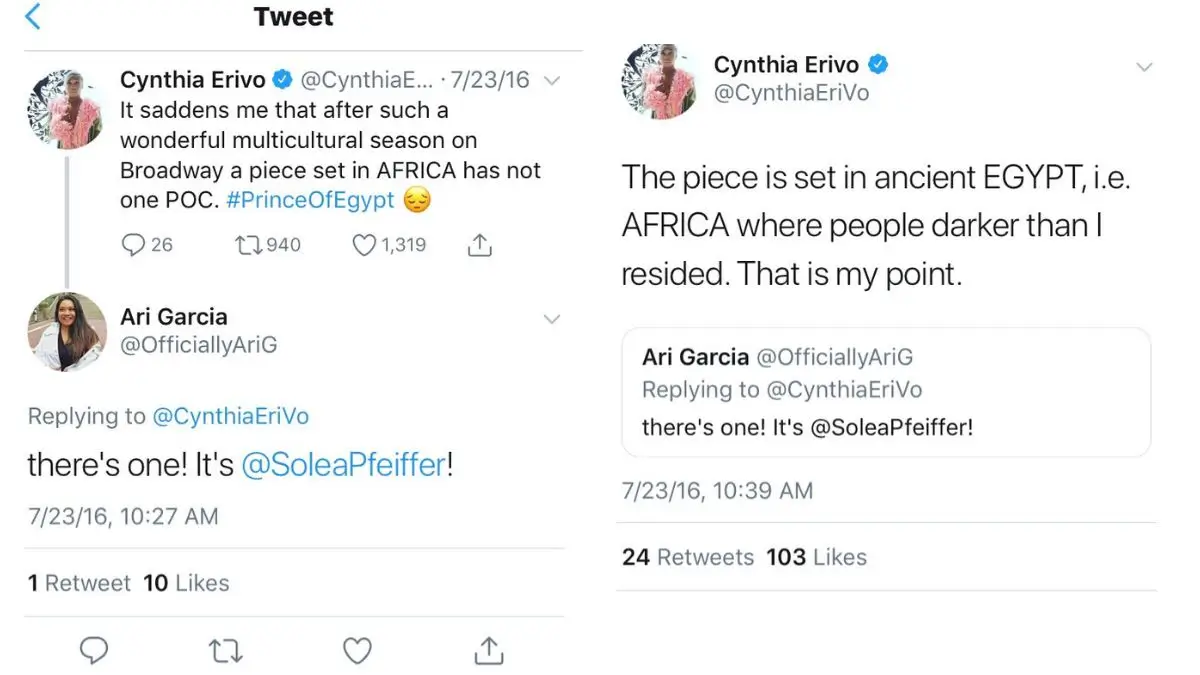
She wrote in a now-deleted tweet, “The piece is set in ancient Egypt, i.e., AFRICA where people darker than I resided! That is my point.”
While promoting her new film “Wicked,” she had an issue with a fan-generated poster that seemed to have covered her face and highlighted her co-star, Ariana Grande.
She voiced her disappointment, stating, “This is the wildest, most offensive thing I have seen, equal to that awful AI of us fighting… Our poster is an homage not an imitation, to edit my face & hide my eyes is to erase me. That is just deeply hurtful.”
Cynthia Erivo has reacted to viral edits of the ‘WICKED’ poster:
— DiscussingFilm (@DiscussingFilm) October 16, 2024
“This is the wildest, most offensive thing I have seen, equal to that awful AI of us fighting… Our poster is an homage not an imitation, to edit my face & hide my eyes is to erase me. That is just deeply hurtful” pic.twitter.com/y3P1Qh379S
For her, this was an issue of erasure.
Supporters argue that Erivo’s talent and dedication to honoring Black stories can’t be ignored. They say her work speaks louder than any old tweets and believe the backlash is overblown.
One person who defended her was singer Janelle Monae, who wound up getting placed on the chopping block.
“S—t list: @JanelleMonae since that popeyes s—t and defending anti-Blackness from the likes of Cynthia erivo and luvee and Cynthia for her disrespect towards Black Americans and f—king up Harriet. Janelle can keep her weak voice and Cynthia can keep her soulless sound,” one person tweeted.
Shit list: @JanelleMonae since that popeyes shit and defending anti-Blackness from the likes of Cynthia erivo and luvee and Cynthia for her disrespect towards Black Americans and fucking up Harriet. Janelle can keep her weak voice and Cynthia can keep her soulless sound
— iamclear (@iamclearer) November 15, 2024
But others aren’t letting it slide, calling her out for what they see as a pattern of benefiting from Black American culture without fully respecting it.
“And idk if it’s just me but she has a very unlikable ass energy to her,” one user tweeted.
Erivo’s casting as Elphaba is undeniably groundbreaking, but the controversy has made her moment bittersweet.
While fans celebrate her talent and representation on the big screen, the backlash highlights a bigger conversation about identity, respect, and accountability — one Erivo will have to confront if she wants to fully win over those calling her out.
